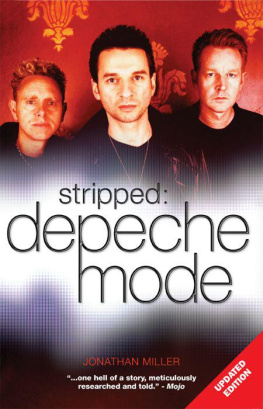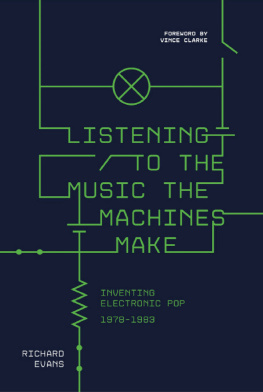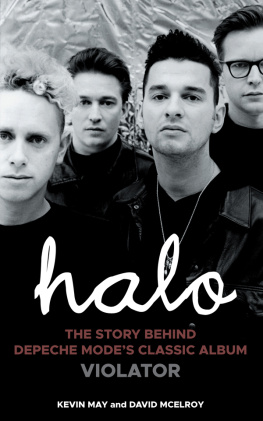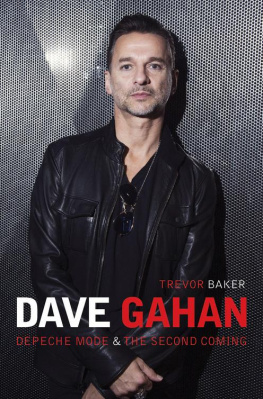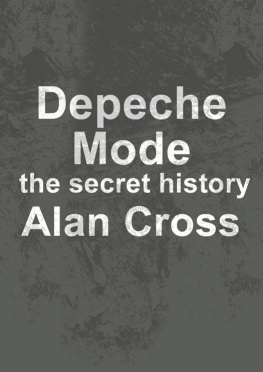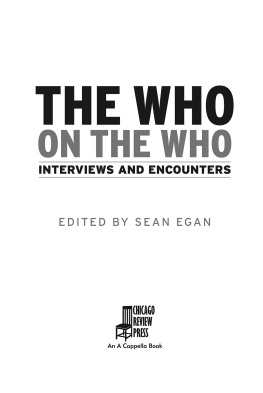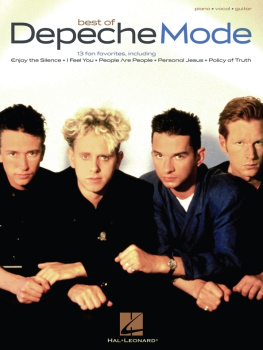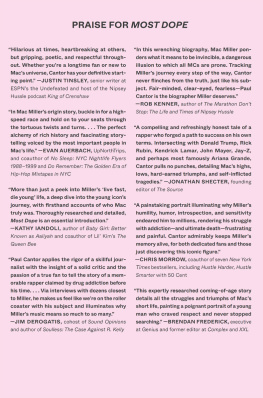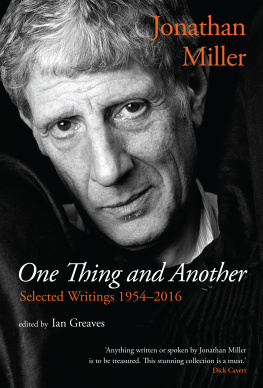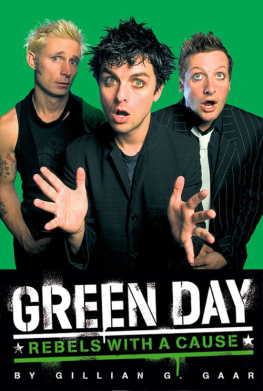The Author hereby asserts his/her right to be identified as the author of this work in accordance with Sections 77 to 78 of the Copyright, Designs and Patents Act 1988.
All rights reserved. No part of this book may be reproduced in any form or by any electronic or mechanical means, including information storage or retrieval systems, without permission in writing from the publisher, expect by a reviewer who may quote brief passages.
Every effort has been made to trace the copyright holders of the photographs in this book, but one or two were unreachable. We would be grateful if the photographers concerned would contact us.
A catalogue record for this book is available from the British Library.
Introduction
From Ultrapop To Stadium Rock
The story of Depeche Mode is an unlikely tale of how, against all odds, four Essex lads achieved fame, fortune and that elusive musical nirvana of longevity and respectability while remaining loyal to their integrity and indie roots. It involves charismatic frontman Dave Gahan, outwardly quiet, yet genuinely gifted songwriter Martin Gore, and self-confessed non-musician Andy Fletch Fletcher. The fourth no longer a member is Vince Clarke, synth Svengali and, when it comes to writing hits, a man with the Midas touch, whose parallel career must be considered as part of this same story. His replacement Alan Wilder, a Londoner by birth was equally integral in shaping the sound of Depeche Modes world breakthrough.
Depeche Mode first stormed the UK singles chart in the early Eighties with infectious slices of fresh-faced, one-fingered synth pop like Just Cant Get Enough and See You. Light, bright and upbeat, they offered a refreshing contrast to the doom-laden paranoia that had served fellow synthesiser enthusiast Gary Numan so well. By chalking up two number one singles and two number one albums in a three-month period of 1979, Numan had become the UKs fastest rising synth star, opening the floodgates for the wave of early-Eighties synth-based acts that followed. Among these hopefuls were Depeche Mode, whose then-principal songwriter Vince Clarke christened his catchy compositions U.P. or Ultrapop while his fellow synth-playing cohort Andy Fletcher once crowed, Were going to be The Beatles of the indies!
With the benefit of hindsight, the irony of Fletchers prophetic words would surely not be lost on the man today: from Basildon beginnings to globetrotting stadium superstars, teenage bubblegum synth popsters to popular late-thirty-something serious musicians, clean-cut to drug-fuelled and back again, Depeche Mode have done it all, and survived quite literally so in the case of vocalist Dave Gahan.
Having sold a staggering 40 million albums and performed to some six million people over 20 years, whod have guessed theyd still be releasing Multi-million-selling albums of dark, yet somehow uplifting songscapes that have become their latter-day trademark? It nearly wasnt so-on more than one occasion.
For Depeche Mode are no strangers to pops undulating currents. They were written off as early as 1981 when, dissatisfied with the promotional and touring circus, Clarke unexpectedly departed immediately following the release of the bands lightweight dbut LP, Speak & Spell. While he wasted little time in finding success with Alison Moyet in Yazoo and longevity with Erasure, Gahan and remaining synth players Fletcher and Martin Gore refused to be beaten. The latter promptly took over song-writing duties while classically trained keyboard virtuoso Alan Wilder filled Clarkes on-stage shoes and soon proved indispensable in the studio.
Confounding fans and critics alike, Depeche Mode admirably reinvented themselves over the coming years, finally attaining world domination status on the 101st and final concert of their Music For The Masses world tour in front of a 70,000-strong audience at Pasedenas Rose Bowl in California on June 18, 1988. It was often claimed that, after The Beatles, Depeche Mode were the most popular pop/rock outfit in the Soviet Union! Clearly their appeal knows no political bounds.
What goes up must come down. Following 1993s difficult Songs Of Faith And Devotion album, the 158-show trek to over two million fans took its toll in more ways than one, not least Wilders 1995 dramatic departure, put down to dissatisfaction with the internal relations and working practices of the group. Doom merchants again predicted Depeche Modes disbandment, not least because of Gahans substance abuse. They were almost right.
Gahan, Gore and Fletcher only just managed to regroup as a trio under the watchful production gaze of Bomb The Bass dance maverick Tim Simenon Depeche Mode having inadvertently influenced a new generation of global electronica in its dazzling array of guises (techno, house, trance, trip hop, et al). 1997s chart topping Ultra, shifted over four million copies worldwide, and spawned Barrel Of A Gun the groups highest UK hit single in several years. A tough act to follow, but Depeche Mode showed no sign of letting up, tentatively touring only 65 dates this time out-in support of their well-earned The Singles 86>98 compilation, albeit mindful of recent excesses and near misses.
Come 2001, a revitalised Depeche Mode were back in the studio, firing on all cylinders. Chosen to helm what became the Exciter album was producer Mark Bell, co-founder of LFO, a Warp Records signing dubbed as one of the most influential techno acts of the early Nineties. At the time of writing, three million copies had been sold following Depeche Modes 83-date North American and European tour.
Exciter itself is testament to the teamwork behind Depeche Modes enviable endurance in this case Bells production skills and Gores songwriting talent, a talent rightly recognised with the May 1999 presentation of an award for International Achievement by the British Academy of Composers & Songwriters. Mute Records founder Daniel Miller, the man who sealed a deal with Depeche Mode with a simple handshake no written details, no formal contracts back in 1980, made that presentation.
To evoke a clich what is the secret of Depeche Modes success? Perhaps fellow British electropop pioneer Thomas Dolby is in a better position to answer: When a Depeche Mode song comes on the radio, I know instantly its them even if its a brand new release or an obscure album cut Ive never heard before. Even in the overcrowded world of electronic music, where we all have more or less the same tools at our disposal, Depeche Mode consistently stands out. They just have a sound thats completely unique, and hard to put your finger on
Jonathan Miller
Whitley Bay, September 2002
For Emma, Megan, and Abby (the loves of my life)
PART I
Basildon Bygone Daze
Sometimes I feel, all of a sudden, Im going to wake up, and then Im going to be doing my old job, with a synthesiser in a suitcase, going to a small little place in Canning Town. So it does seem like a real dream, and its gone very, very fast!
Andy Fletcher, 2001
1
Basildon Bonding
I really hated Basildon. I wanted to get out as quickly as I could. I think being in a band was an escape. There was very little to do. Its one of those places where you go drinking because thats your only option.

